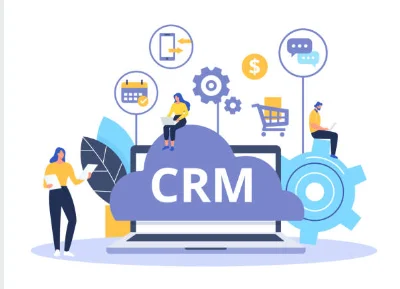How Florida Companies Are Leveraging CRM Software for Enhanced Customer Retention
In the competitive landscape of business today, customer retention has become a pivotal focus for companies aiming to sustain growth and profitability. In Florida, businesses are increasingly turning to Customer Relationship Management (CRM) software to enhance their customer retention strategies. This article explores how Florida companies leverage CRM systems to foster stronger relationships with customers, improve service delivery, and ultimately drive loyalty.
Understanding CRM Software
What is CRM Software?Customer Relationship Management (CRM) software is a technology that helps businesses manage interactions with current and potential customers. It centralizes customer information, tracks interactions, and automates various processes to improve customer service and retention. By utilizing CRM software, companies can gain valuable insights into customer behaviors and preferences, enabling them to tailor their offerings more effectively.Key Features of CRM Software
- Data Management: CRMs store comprehensive customer data, including contact information, purchase history, and interaction logs.
- Automation: Many CRMs automate routine tasks such as follow-up emails, appointment scheduling, and reminders.
- Analytics: CRM systems often include analytics tools that help businesses track performance metrics and customer engagement levels.
- Segmentation: Businesses can segment customers based on various criteria, allowing for targeted marketing efforts.
The Importance of Customer Retention
Why Focus on Retention?Customer retention is crucial for several reasons:
- Cost Efficiency: Acquiring new customers can be five times more expensive than retaining existing ones.
- Loyalty Building: Retained customers are more likely to make repeat purchases and refer others.
- Revenue Growth: Increasing customer retention rates by just 5% can boost profits by 25% to 95%
2
.
How Florida Companies Utilize CRM for Enhanced Customer Retention
Personalized Customer Experiences
Florida companies are leveraging CRM software to create personalized experiences for their customers. By analyzing data collected through the CRM, businesses can understand individual customer preferences and tailor their communications accordingly.
- Example: A retail company in Miami uses its CRM to track customer purchases and preferences. This allows them to send personalized promotions and recommendations, enhancing the shopping experience and encouraging repeat visits.
Proactive Communication
Effective communication is key to retaining customers. CRMs facilitate proactive engagement by automating follow-up communications and reminders.
- Example: A healthcare provider in Tampa utilizes a CRM system that sends automated appointment reminders via email or SMS. This reduces no-show rates and keeps patients engaged with their healthcare services.
Identifying At-Risk Customers
CRM systems enable businesses to identify at-risk customers through analytics that track engagement levels and purchasing patterns.
- Example: A subscription service in Orlando uses its CRM to monitor subscriber activity. If a customer hasn’t engaged with the service in a while, the system triggers a re-engagement campaign offering discounts or special content tailored to their interests.
Streamlining Customer Support
Customer support is a critical aspect of retention. By using CRM software, Florida companies can streamline support processes, ensuring timely responses to customer inquiries.
- Example: A tech company in Jacksonville implements a ticketing system within its CRM that categorizes support requests based on urgency. This allows support teams to prioritize issues effectively and provide quicker resolutions.
Enhancing Customer Feedback Loops
Gathering feedback is essential for continuous improvement. CRMs facilitate the collection of customer feedback through surveys and follow-up communications.
- Example: A restaurant chain in Florida uses its CRM to send post-dining surveys via email. The feedback collected helps the management make informed decisions about menu changes or service improvements.
Success Stories from Florida Companies
Salesforce Implementation at a Local Business
A prominent example of successful CRM implementation is seen in a Florida-based real estate agency that adopted Salesforce as its CRM solution. By utilizing Salesforce’s capabilities, the agency improved its lead management process significantly:
- Increased Lead Conversion Rates: The agency reported a 30% increase in lead conversion rates within six months of implementing Salesforce.
- Enhanced Client Relationships: Personalized communication strategies led to improved client satisfaction ratings.
HubSpot for Marketing Automation
Another Florida company specializing in digital marketing adopted HubSpot for its comprehensive marketing automation features:
- Targeted Campaigns: By segmenting their audience based on behavior tracked in HubSpot, they launched targeted email campaigns that resulted in a 50% increase in engagement rates.
- Improved ROI: The company saw a 40% increase in return on investment from marketing efforts attributed directly to the insights gained from HubSpot analytics.
Challenges in Implementing CRM Software
While the benefits of CRM systems are substantial, Florida companies face challenges during implementation:
- Data Quality Issues: Ensuring accurate and up-to-date data can be difficult.
- User Adoption: Employees may resist adopting new technology due to comfort with existing processes.
- Integration with Existing Systems: Integrating CRM software with other business systems can pose technical challenges.
To overcome these challenges, businesses must invest time in training staff and ensuring data integrity from the outset.
Future Trends in CRM Usage
As technology continues to evolve, so too will the capabilities of CRM systems:
- AI Integration: Artificial intelligence will play an increasingly significant role in predictive analytics within CRMs.
- Omnichannel Support: Future CRMs will provide seamless integration across multiple communication channels (social media, email, phone).
- Enhanced Mobile Access: With more employees working remotely, mobile-friendly CRMs will become essential for on-the-go access to customer information.
Conclusion
Florida companies are effectively leveraging CRM software not only as a tool for managing customer relationships but also as a strategic asset for enhancing customer retention. By focusing on personalized experiences, proactive communication, and efficient support processes, these businesses are setting themselves up for long-term success. As technology continues to advance, the potential for CRMs to further transform customer engagement strategies remains vast.For additional insights on how CRM technology can benefit your business operations or enhance your marketing strategies, consider exploring resources from leading CRM providers such as Salesforce or HubSpot.


